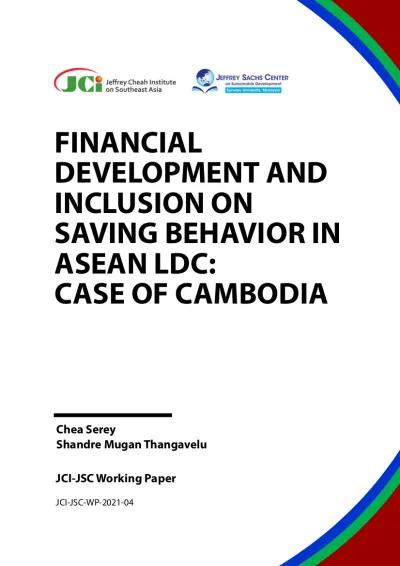
JCI-JSC-WP-2021-04: Financial Development and Inclusion on Saving Behavior in ASEAN LDC: Case of Cambodia
Publication date: December 2021 | Length of paper: 28 pages | ISBN: 978-967-5492-63-1
In this paper, we explore the impacts of financial intermediation and financial inclusiveness on saving behavior of developing economy such as Cambodia using individual data from Global Findex database in 2017. We explore the impact of financial intermediation such as bank deposits, mobile banking, credit cards and debit cards on the saving behavior individuals in Cambodian economy. Particularly, we examine if increasing financial intermediation to vulnerable populations at the poorest segment of society will increase their saving behavior. The impact of financial inclusion in terms of a shift from informal to formal savings and investments through financial institutions will have a strong impact on resource mobilization for productive investment in the domestic economy. The results indicate that financial intermediation has positive impact on overall savings and also savings at banks and financial institutions. Particularly, we observed that individuals having a direct account with a bank and financial institution increases the probability of saving at the bank and financial institution. We also observed that financial innovation such as debit cards has positive impact on the probability of saving in the economy.
Key words: Financial Inclusion, Formal Savings, Financial Intermediation
JEL Classification: D14, D18, G21, G28, I25, L26
Author(s)
Chea Serey
National Bank of Cambodia
Senior Fellow
The JCI-JSC Working Paper series is published to disseminate preliminary research findings and stimulate intellectual discourse on wide-ranging public policy issues, ranging from security to sustainability. The views expressed herein are those of the author(s) and do not necessarily reflect the views of the Jeffrey Cheah Institute on Southeast Asia and the Jeffrey Sachs Center on Sustainable Development.



